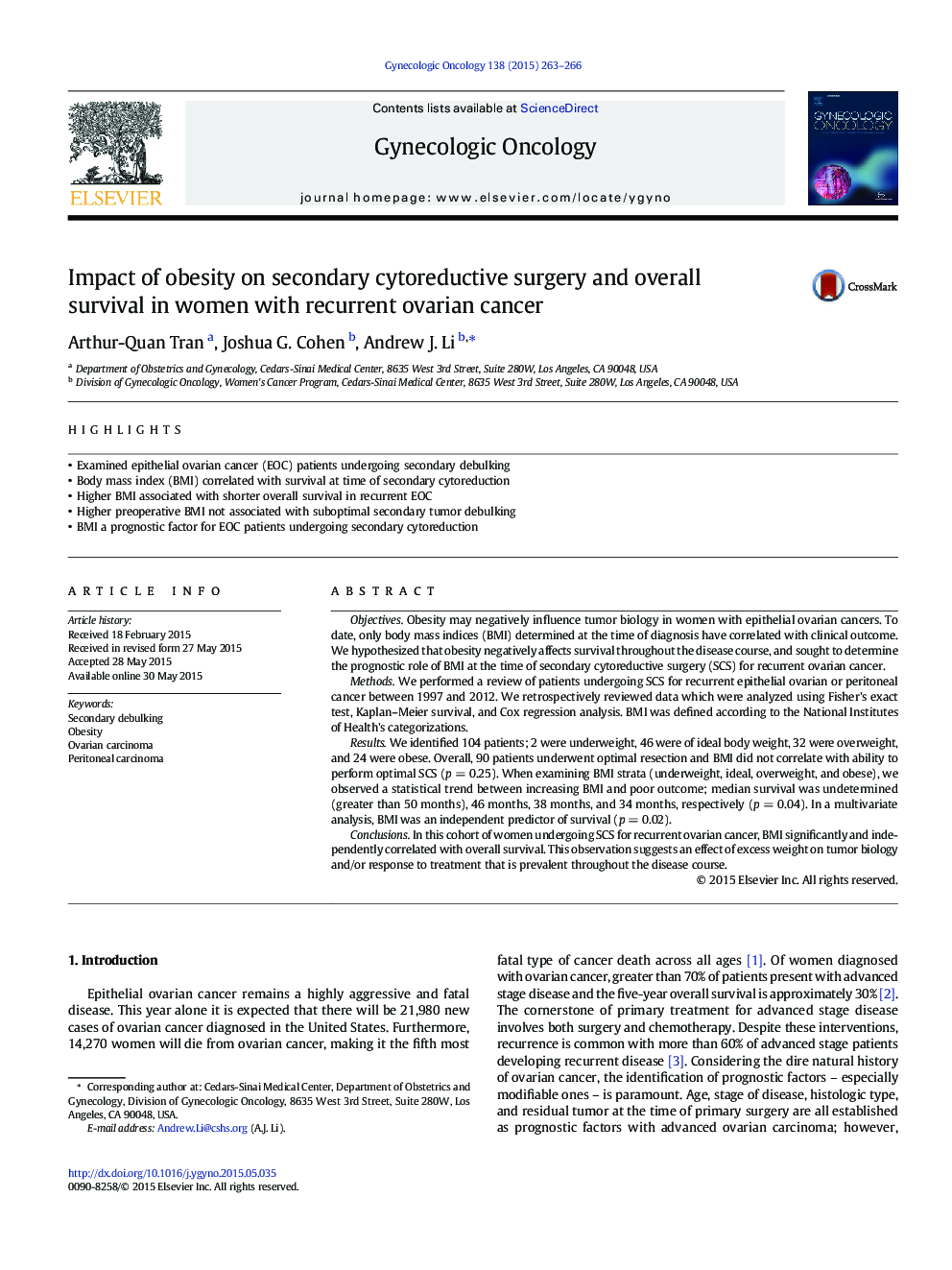| کد مقاله | کد نشریه | سال انتشار | مقاله انگلیسی | نسخه تمام متن |
|---|---|---|---|---|
| 3943145 | 1254076 | 2015 | 4 صفحه PDF | دانلود رایگان |
• Examined epithelial ovarian cancer (EOC) patients undergoing secondary debulking
• Body mass index (BMI) correlated with survival at time of secondary cytoreduction
• Higher BMI associated with shorter overall survival in recurrent EOC
• Higher preoperative BMI not associated with suboptimal secondary tumor debulking
• BMI a prognostic factor for EOC patients undergoing secondary cytoreduction
ObjectivesObesity may negatively influence tumor biology in women with epithelial ovarian cancers. To date, only body mass indices (BMI) determined at the time of diagnosis have correlated with clinical outcome. We hypothesized that obesity negatively affects survival throughout the disease course, and sought to determine the prognostic role of BMI at the time of secondary cytoreductive surgery (SCS) for recurrent ovarian cancer.MethodsWe performed a review of patients undergoing SCS for recurrent epithelial ovarian or peritoneal cancer between 1997 and 2012. We retrospectively reviewed data which were analyzed using Fisher's exact test, Kaplan–Meier survival, and Cox regression analysis. BMI was defined according to the National Institutes of Health's categorizations.ResultsWe identified 104 patients; 2 were underweight, 46 were of ideal body weight, 32 were overweight, and 24 were obese. Overall, 90 patients underwent optimal resection and BMI did not correlate with ability to perform optimal SCS (p = 0.25). When examining BMI strata (underweight, ideal, overweight, and obese), we observed a statistical trend between increasing BMI and poor outcome; median survival was undetermined (greater than 50 months), 46 months, 38 months, and 34 months, respectively (p = 0.04). In a multivariate analysis, BMI was an independent predictor of survival (p = 0.02).ConclusionsIn this cohort of women undergoing SCS for recurrent ovarian cancer, BMI significantly and independently correlated with overall survival. This observation suggests an effect of excess weight on tumor biology and/or response to treatment that is prevalent throughout the disease course.
Journal: Gynecologic Oncology - Volume 138, Issue 2, August 2015, Pages 263–266
